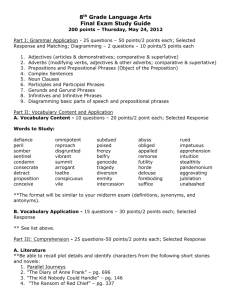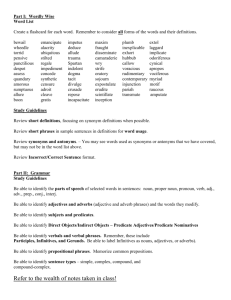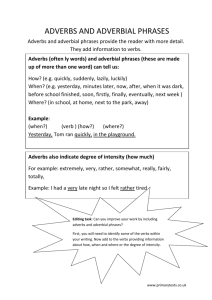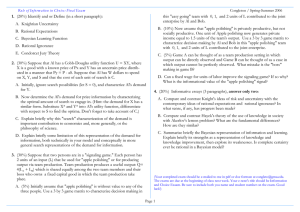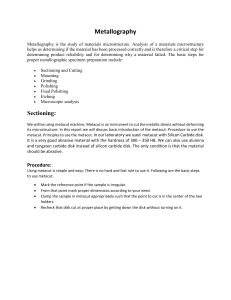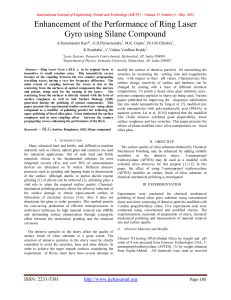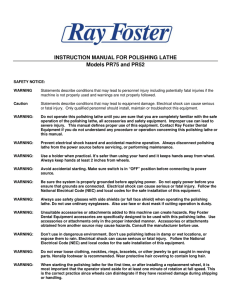Task: Cleaning up the Text
advertisement
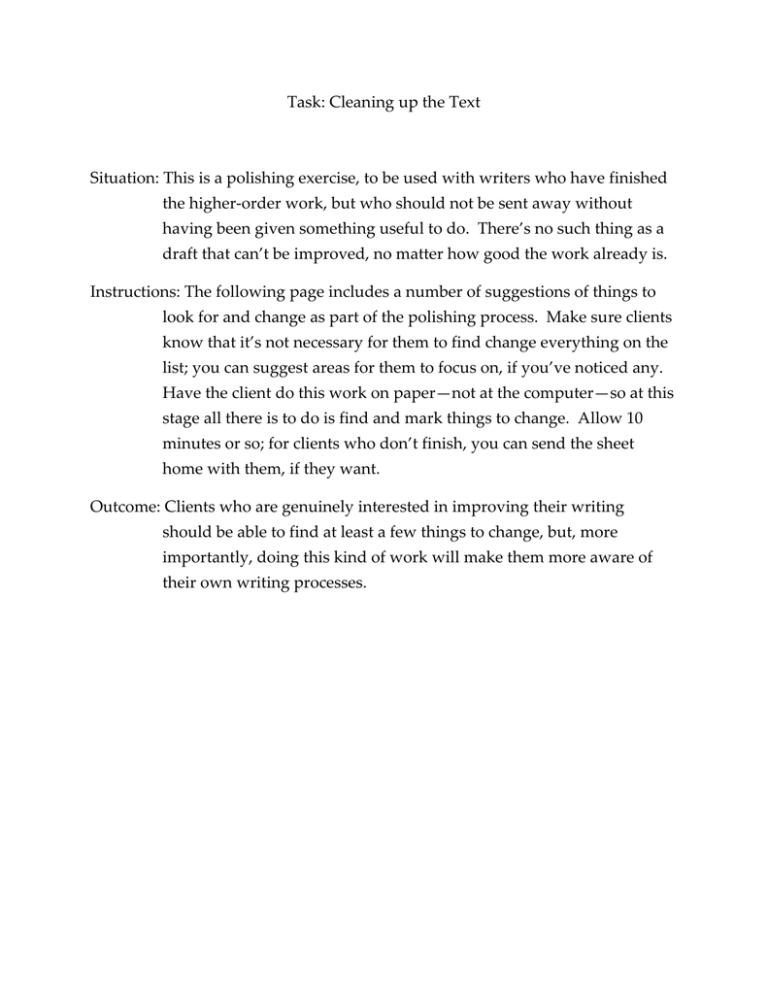
Task: Cleaning up the Text Situation: This is a polishing exercise, to be used with writers who have finished the higher-order work, but who should not be sent away without having been given something useful to do. There’s no such thing as a draft that can’t be improved, no matter how good the work already is. Instructions: The following page includes a number of suggestions of things to look for and change as part of the polishing process. Make sure clients know that it’s not necessary for them to find change everything on the list; you can suggest areas for them to focus on, if you’ve noticed any. Have the client do this work on paper—not at the computer—so at this stage all there is to do is find and mark things to change. Allow 10 minutes or so; for clients who don’t finish, you can send the sheet home with them, if they want. Outcome: Clients who are genuinely interested in improving their writing should be able to find at least a few things to change, but, more importantly, doing this kind of work will make them more aware of their own writing processes. I. Categories of words to consider changing or deleting: Asinine –izes (e.g., utilize, finalize, actualize, contextualize, epitomize, trivialize) Absolutes (always, never, best, worst, all, none) Cliché (e.g., “think outside the box,” “cut and dried,” “where to draw the line”) Conclusive Adverbs (e.g., therefore, thus, consequently, accordingly, hence, in conclusion) Filler Adverbs (e.g., really, actually, simply, truly, literally, definitely) Filler Phrases (e.g., “by and large,” “needless to say,” “fact of the matter”) Flat Impressions (e.g., basic, normal, regular, obvious, ordinary, average) Gushing Evaluations (e.g., great, excellent, awesome, amazing, perfect, flawless, beautiful) Hackneyed Phrases (e.g., “this day and age,” “for all intents and purposes”) Overused Intensifiers (e.g., quite, literally, so, very, especially, perfectly) Pompous Words (e.g., plethora, facilitate, pursuant, ubiquitous, paragon) “Some” words (somebody, someone, something, sometimes, somehow) II. Idiosyncratic Verbal Tics: All writers have certain words or phrases that come readily to mind when they’re in the process of composing. There’s nothing wrong with this—it’s an aid to fluency, in that it helps us bridge gaps that might otherwise slow or even halt the composing process. But at polishing time it’s necessary to reconsider them. If you read your draft carefully, there’s a good chance you’ll find that certain words recur with unnecessary frequency (I’m not talking about “a,” “an,” “the,” etc.), and it’s worth recognizing them and thinking carefully about whether to keep, delete, or change them.
